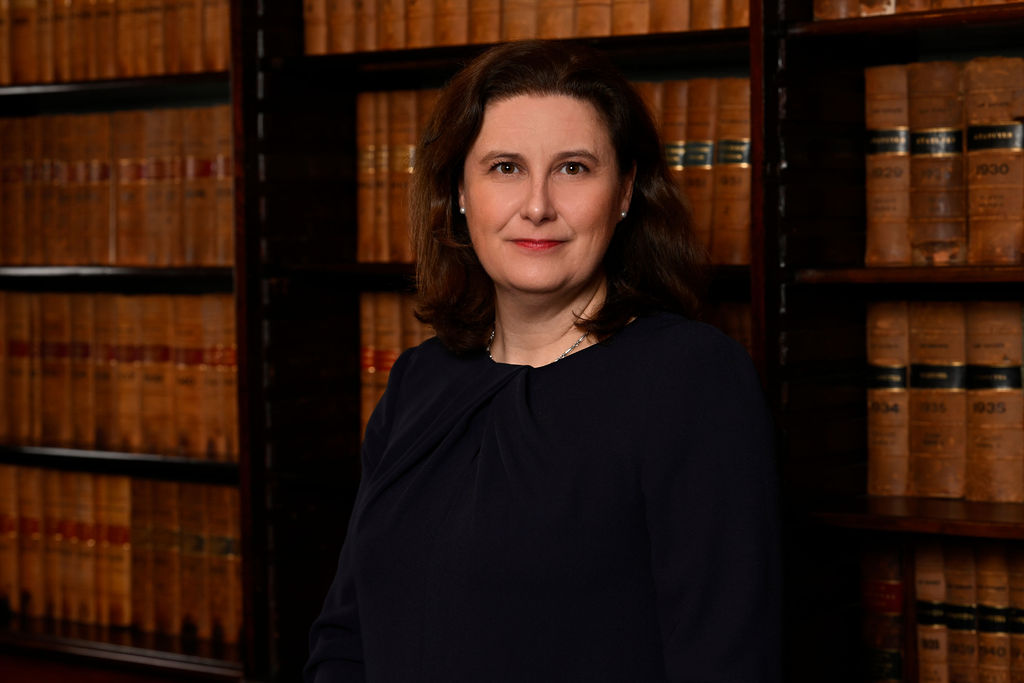UK – England and Wales
How can you prepare child relocation from or within the UK – England and Wales? What if your child has been relocated without your consent?
The UK is located in the continent of Europe, but since Brexit, it is no longer a member state of the European Union. The European Court of Justice has no jurisdiction over the UK since Brexit, however the case law of the ECJ in child abduction cases can be expected to continue to be of influence in the UK. Since Brexit, the Council Regulation (EC) No 2201/2003 of 27 November 2003 and its replacement Council Regulation (EC) No 2019/1111 of 29 June 2019 (Brussels II ter) are not valid in the UK.
The UK is a Contracting State to the 1980 Hague Convention on the Civil Aspects of International Child Abduction and the 1996 Hague Convention on Parental Responsibility and Protection of Children
The UK has a Judicial Protocol with Egypt (Cairo Declaration) and with Pakistan (Pakistan Protocol).
We will explain what this means for your options.
Country Reporter:
Carolina Marín Pedreño
Carolina is partner at Dawson Cornwell in London and head of the Children Department of the firm.
She is also Vice-President of the International Academy of Family Lawyers (IAFL).
Carolina has volunteered to keep this page about the UK – England and Wales up to date.
Lawyers and mediators in UK – England and Wales
We provide a list of lawyers and mediators in United Kingdom – England and Wales, who can assist you in drafting an international parenting plan, in preventing conflicts over the primary residence of the children, and in negotiating and litigating over the children in the event of relocation or child abduction.
Traveling with children: UK – England and Wales
If a parents wants to travel outside the United Kingdom with the child, he or she needs permission from the other parent, if the other parent also has parental responsibility. You can download a consent form from the website of the UK government.
If the other parent does not give consent, the parent wishing to travel outside England and Wales may apply to the court for permission to do in the form of a Specific Issue Order application.
Pursuant to s13(2) CA 1989 the parent with whom the child lives (ie: has a ‘lives with’ Child Arrangements Order in their favour) can remove the child from the United Kingdom for a period of less than one month without the other parent’s consent.
In practice however, it is common for Child Arrangements Orders to be drafted in such terms that both parents are able to travel with the child during the time the child is scheduled to be with them, without requiring the consent of the other parent.
This does not change the fact that the court can make child arrangement orders prohibiting travel.

Child relocation: UK – England and Wales
Court order
If a parent wants to move with the child, either out of the United Kingdom or far enough away that it would impact matters of parental responsibility (such as the school the child attends), they should consult the other parent with parental responsibility (and for international moves they require the other parent’s written consent pursuant to s13 Children Act 1989).
If the other parent with parental responsibility does not consent, the parent who wants to move may request permission from the court in the form of a Specific Issue Order application.
The other parent can ask the court to make an order prohibiting the relocation or for an order requiring the return of the child if the other parent moves without their consent.
Relocating a child to a different part of the UK without permission of the other parent or the court, is not a crime.
Criteria: Re TC and JC
Both internal (within the United Kingdom) and external (international) relocation applications are subject to the welfare principle (s1(1) CA 1989), which dictates that the child’s welfare is the court’s paramount consideration. The factors to be weighed up in internal and external relocation applications to assist the welfare analysis exercise (using the s1(3) CA 1989 checklist) are the same.
In the case Re TC and JC (2013, EWHC 292 (FAM)), the court shows a clear guidance on the court’s approach to relocation applications (now to be applied to internal relocations too):
• The only authentic principle to be applied when determining an application to relocate a child permanently overseas is that the welfare of the child is paramount and overbears all other considerations, however powerful and reasonable they might be.
• The guidance given by the Court of Appeal [in the case of Payne v Payne (2001 EWCA Civ 166) at [84]] as to the factors to be weighed in search of the welfare paramountcy, and which directs the exercise of the welfare discretion, is valuable. Such guidance helps the judge to identify which factors are likely to be the most important and the weight which should generally be attached to them, and, incidentally, promotes consistency in decision-making.
• The guidance is not confined to classic ‘primary carer’ applications and may be utilised in other kinds of relocation cases if the judge thinks it helpful and appropriate to do so.
• The guidance suggests that the following questions be asked and answered (assuming that the applicant is the mother):
a) Is the mother’s application genuine in the sense that it is not motivated by some selfish desire to exclude the father from the child’s life?
b) Is the mother’s application realistically founded on practical proposals both well researched and investigated?
c) What would be the impact on the mother, either as the single parent or as a new wife, of a refusal of her realistic proposal?
d) Is the father’s opposition motivated by genuine concern for the future of the child’s welfare or is it driven by some ulterior motive?
e) What would be the extent of the detriment to him and his future relationship with the child were the application granted?
f) To what extent would that detriment be offset by extension of the child’s relationships with the maternal family and homeland?
• Since the circumstances in which such decisions have to be made vary infinitely and the judge in each case has to be free to decide whatever is in the best interests of the child, such guidance should not be applied rigidly as if it contains principles from which no departure is permitted.
• There is no legal principle, let alone some legal or evidential presumption, in favour of an application to relocate by a primary carer. The old statements which seem to favour applications to relocate made by primary carers are no more then a reflection of the reality of the human condition and the parent-child relationship.
• The hearing must not get mired in taxonomical arguments or preliminary skirmishes as to what label should be applied to the case by virtue of either the time spent with each of the parents or other aspects of the care arrangements.
The Court of Appeal cases Re K (2011, EWCA Civ 79), Re F (2012, EWCA Ci 1364) and Re F (2015, ECWA Civ 882) show that the focus must be on the child’s best interests having regard to court guidance, but such guidance and the factors set out are not presumptuous but part of the overall welfare analysis.
The case Re F from 2012 held that there is a need for the court to carry out
1) a holistic comparative balancing exercise of the realistic options before the court including the plans of both parents, and
2) a proportionally evaluation in respect of the interference with the established family life the children had with the other parent (so taking into account that the effect of an international relocation is such that the Article 8 rights of a child are likely to be infringed).
The case of Re C (Internal Relocation) [2015] EWCA Civ 1305 set a new standard for internal relocation whereby the guidance above should also be applied to internal relocations. The Court of Appeal emphasised that the welfare of the child was paramount, assessed by way of the welfare checklist, as set out at s1(3) Children Act 1989 and the considerations set out in Payne v Payne weighed in the balance of making this holistic assessment.
Child abduction: UK – England and Wales

Hague Convention
The UK is a Contracting State to the 1980 Hague Convention on the Civil Aspects of International Child Abduction and the 1996 Hague Convention on Parental Responsibility and Protection of Children. The obligations that the Conventions create are elaborated in the Child Abduction and Custody Act 1985.
Government
The Central Authority (International Child Abduction and Contact Unit (ICACU) is a first point of contact if you want your children to return. The ICACU prefers to communicate with the Central Authority of the applicant’s country to which he or she seeks the child’s return.
The ICACU has a panel of specialised solicitors who can represent you. The ICACU will send your return application to a solicitor from this panel. The solicitor will contact the abducting parent and will promote a voluntary return during all stages of the judicial proceedings. This representation of the applicant is for free.
You are not obliged to contact the Central Authority first. You may contact specialist child abduction solicitors in the country to which the child has been abducted/wrongfully retained who may then contact the ICACU on your behalf.
For more information, you can visit the Government website.
Court procedure
In the UK, all child abduction cases are heard by the Family Division of the High Court of Justice. The hearing usually take place in the Royal Courts of Justice in London. The High Court in principle gives its judgment within 6 weeks. There is no automatic right for appeal. Permission to appeal is required. An appeal must be filed within 21 days. The appeal procedure can take up to 3 months.
Child participation
Children can be heard in the return procedure, if article 13 (2) of the Convention (grave risk exception) is relied upon. The child can be heard by an independent expert who prepare a report for the court or by the child’s own legal representative. Normally the child’s views are heard through the Children and Family Court Advisory and Support Services (CAFCASS). The CAFCASS reporter will meet the child.
Other UK proceedings
If any proceedings in respect of the child have been initiated in the UK under section 8 of the Children Act 1989, these shall be stayed pending the final order of the High Court.
Mediation
Mediation and volutary return will be promoted at all stages.
Execution
A return order can be suspended pending an appeal at the request of either party.
The court can direct who is to make arrangements for the return and who is responsible for the costs.
If the applicant needs to start a procedure to enforce a return order, he can get free legal aid for that procedure as well.
Several coersive measures are available to enforce a return order, such as: intervention by government agency (police), removal of the child from the abducting party, imprisonment and pecuniary measures.
Prevention
If you think your child is in the UK, but you do not know exactly where, the UK Central Authority can help you locate your child. You can still start a return procedure and a location order can be applied for within the proceedings. This can include third party disclosure orders against public bodies, private companies and individuals.
If you fear that your child will be abducted from the Netherlands to another country, or otherwise disappear from view, various measures can be taken:
• child’s passports to be deposited with authorities
• alleged abductor’s passport to be deposited with authorities
• obtain orders to prevent the removal of the child
• issuing border and/ or port alerts
• temporary placement of child in institutional care.
Legal aid
The applicant can get free, non-means, non-merit tested legal aid from a panel solicitor from ICACU. The alleged abducting parent will have to arrange legal aid by himself. But he or she can also contact the panel solicitors. To find out whether you can get subsidized legal aid, you can visit the government website.

For more details: check the country profile of UK – England and Wales on the website of HCCH.
Criminal law : UK – England and Wales
Criminal law
The Child Abduction Act 1985 made child abduction a criminal offence, if a person connected with a child removes or sends that child out of the jurisdiction without the appropriate consent.
Information on the whereabouts
The Child Abduction Act 1985 also gives the court a wide range of possible interim orders to be taken against any person who the court has reason to believe may have relevant information, to disclose this information in an attempt to find out the whereabouts of a child (s24A).

Websites : UK – England and Wales
Permission form to travel with children
UK government website : Consent letter for minors traveling abroad
Implementing act
UK government website : Child Abduction and Custody Act 1985
Government website on Child Abduction:
www.gov.uk : International Parental Child Abduction
Central Authority
www.hcch.net : UK Central Authority
Subsidized legal aid
Books & Articles: UK – England and Wales

A Practical Guide to Exercising the Inherent Jurisdiction in Family Law Proceedings
November 2023
By Mani Singh Basi,
barrister at 4PB, London
The book deals with a number of topics relating to the use of the inherent jurisdiction in international child abduction disputes, public law disputes (including deprivation of liberty), private law disputes and urgent medical treatment cases.
In relation to child abduction, this book considers inward and outward abduction cases in relation to 1980 Hague Convention signatories and non-hague states.
This book can be ordered online at Amazon or at Law Brief Publishing.

Stranded spouses
May 2023
By Mani Singh Basi,
barrister at 4PB, London
Mani discusses the different possible situations, among which stranded spouses who are separated from the children, using his expertise in both child abduction cases and stranded spouses cases.
This book can be ordered online at Law Brief Publishing.
Holiday abductions: 1
July 2022
By Mani Singh Basi,
barrister at 4PB, London
How should a left behind parent proceed when their child
is wrongfully retained abroad?
This article was published on the website of 4PB.
It is the first article in a series of 3.
Blogs about UK – England and Wales
Dealing with international child abduction
When dealing with international child abduction, acting quickly is important. But so is providing all relevant information and seriously consering mediation. UK Family lawyer Donna Tilbrook shares her advices from years of dealing with these complex cases.
Supporting families and colleagues through the CALA
UK family lawyer Donna Tilbrook helps families who are facing child abduction proceedings through the CALA. She explains how her firm, Best Solicitors in Sheffield, acts in these swift proceedings, how they work together with other professionals and how they support families in these difficult times.
Donna also highlights the aims of the Child Abduction Lawyer’s Association (CALA).
International Child Abduction and The Hague Convention
International Child Abduction and The Hague Convention By Kim Lehal, RWK Goodman, London Child abduction is probably one of the most devastating things to happen in a child’s and a parent’s life. It is often by a family member usually a parent, who takes a child away...
Case law in UK – England and Wales
International Law in Domestic Courts: A Note on Child Litigation in the UK
Since Brexit the Brussels II bis Regulation no longer applies. Family Lawyer Ankit Malhotra explains how the courts in the UK deal with child abduction cases, using the Hague Convention on Child Abduction.
Ankit discusses the case of FPS v SM [2024] CSIH 20, about children who lived with their father in Spain and who did not want to return to Spain after visiting their mother in Scotland.
Return to Russia?
Return to Russia? Sacha Lee, working with Carolina Marin Pedreño, acted for the mother in her successful application for a return order pursuant to the 1980 Hague Convention after two of the the parties’ children were wrongfully retained in this jurisdiction by the...
Does a fixed calendar date for a return need to be fixed in abduction cases?
Does a fixed calendar date for a return need to be fixed in abduction cases? This case concerned an application made by a father for the return of the parties’ three children to Canada pursuant to the provisions of the 1980 Hague Convention. The father’s application...
Lawyers and mediators in the UK – England and Wales































